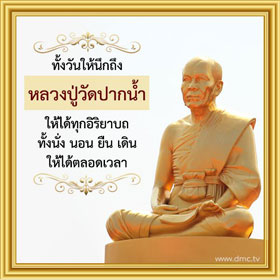Blameless work # 1Blameless in this context refers to work that does not cause enemies, bring harm to others.Just because a factory can make a large amount of things, it does not mean that it is a good factory, The products it makes must have good quality and long life.In the same way, a person who works hard and long is not always beneficial to himself and other people unless he chooses to do blameless work.Definition of blameless workBlameless in this context refers to work that does not cause enemies, bring harm to others. Blameless work is beneficial to both the person doing the work and other people.There are two levels of working ability: Job done and well-done job.1. Job done: Finishing the work without being interested in the quality.2. Job well-done: Finishing the work with the result being of the best of the quality.Job done implies doing things you want to do even though the way to get the result may not be ethical. Same people want a high position and will only do things to get it no matter if they obtain it through unethical or illegal ways. This is merely a primary level of working ability.Good persons will go to the next level, a job well-done. Persons of virtue should have two qualities: not only they get the job done will. They can choose whether or not they should perform the work. When the work is unethical, they will never do .The first type can be compared to a baby who just learns how to eat. The baby can only put things in his/her mouth, swallow it, just eating not knowing how to eat. If the nanny does not pay attention, the infant might accidentally put poisonous food in his/her mouth and cause big trouble to the parents. Persons who know how to eat will eat only what they should. Likewise, a very good worker must know what good work is and what is not before he/she starts working.Finishing the work with the result being of the best of the quality.Judging the Ethical Value of WorkOften when people are looking to measure the standard of the work they do, they rely too heavily on the amount of praise or criticism they receive from others. However, different people have different points of view, so you have to measure the quality of your work based on reason. The Buddha taught four standards for judging “blameless work” : the first two are the worldly standards, and the latter two are spiritual standards.1. Legal2. In-keeping with tradition3. Not breaking the Five Precepts4. Does not compromise your virtues1. Legal:Restrictions set by law is unavoidable. Doing illegal things is worthy of blame. Although something may not be immoral, e.g. building a house in a municipal area without permission or in doing so, by breaking the law we fall into unavailable trouble.Lord Buddha insisted that both monks and lay people must strictly follow the law. Lord Buddha didn’t teach anyone to do anything illegal. Buddhism teaches Buddhists to love peace and respect the law. Under no circumstance should we ever go against the law.Job done implies doing things you want to do even though the way to get the result may not be ethical.2. In-keeping with tradition:Some things do not break the law, but because they are out of keeping with local customs or traditions, they may bring you into conflict with others, e.g. weddings, greetings, dining, respecting seniority. So how can you tell if a custom is worth respecting or not ? Wherever we go, we should learn their local custom and accommodate as much as we can. If it will bring disadvantage to us in order to keep our dignity, we should avoid it.3. Not breaking the Five Precepts:Precepts are the foundation of all good deeds. Precepts are the heart of Buddhism as is said in the “Threefold Training”:- Precepts are the basis of meditation.- Meditation leads to wisdom.- Wisdom is a way to enlightenment.Thus people who want to do good deeds without keeping precepts are like those who want to build a mansion in thin air. Buddhists should examine every time before working if that work is against the Five Precepts. If it is, we must abstain from it.Lord Buddha said “We should regularly examine ourselves as to whether we have an imperfection in our precepts, and whether or not those who are better than us can blame us for our imperfection of the precepts.”Precepts are the basis of meditation.4. Does not compromise your virtues:In Buddhism virtue means correctness and goodness. When working we have to carefully think of the virtue taught by the Lord Buddha. Something might not break the law, tradition, and precepts, but it may not be wholesome according to Buddha’s teachings. Four Foundations of success.- Thinking of revenge is compromises the Tenfold Path of Wholesomeness. (see Blessing 19)- Being lazy is not compromising with the Four Foundations of success.- Being a robber or gambler is compromises the six “Roads to Ruin”Thus whether we are in the act of physical, verbal, or mental work, we must do it in the right way and follow the law, tradition, precepts, and virtues. A problem might occur when some people want to do blameless work, but they realize too late that they are doing the opposite. We need to research this beforehand.

http://goo.gl/26uba











 พิมพ์บทความนี้
พิมพ์บทความนี้




























